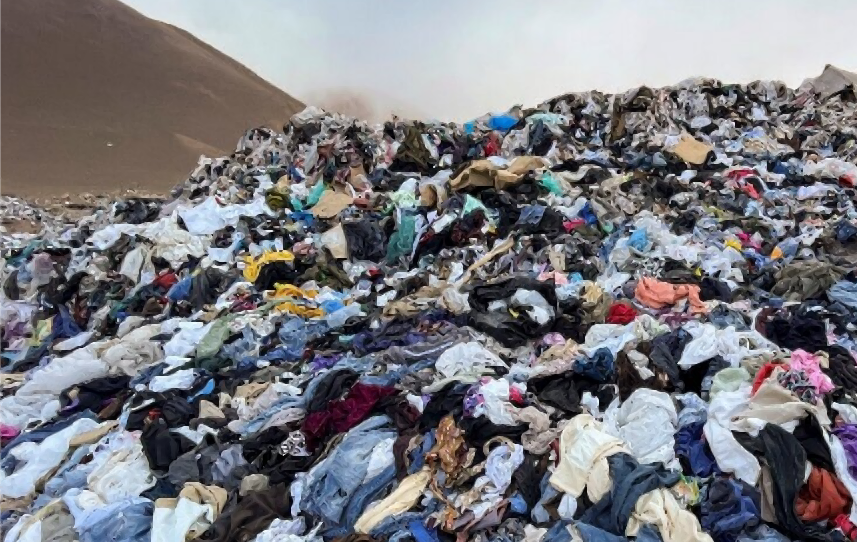Rebecca Shaw ’22 sparks conversation on sustainable fashion with research project
Rebecca Shaw ’22 (Business) always considered herself aware of environmental issues, but it wasn’t until she studied fast fashion in the Introduction to Managing Sustainability course at SUNY New Paltz that she gained new insight in how she could be contributing to the changing climate by simply shopping for clothes.
“I realized that I had been buying garments that could be discarded easily, and so I had a goal to raise awareness of the phenomenon of fast fashion and advocate for alternatives,” she said.
This revelation inspired her to make fast fashion the focus of her Honors Program thesis, an intensive research project that served as the capstone of her undergraduate experience at New Paltz
Shaw describes fast fashion as the cheap and quick mass production of garments to meet current fashion trends, common at retailers like Zara, Forever 21 and H&M. Her presentation cites notes that the average consumer throws away more than 80 pounds of clothing every year, and fast fashion alone may be responsible for nearly 10% of global carbon emissions.
“It’s a practice that has taken over the entire fashion industry right now,” she said.
“There are implications to buy such mass-produced inexpensive clothing,” added Associate Professor of Theatre Arts Andrea Varga, who served as the project’s faculty advisor and has studied this issue for a decade. “We are sending a lot of recyclable textiles to our landfills, and it’s a terrible waste of resources.”

Awareness of sustainable fashion, locally and globally
Shaw’s report, “Creating a Sustainable Planet: How Fast Fashion is Contributing to Textile Waste,” synthesized publicly available data on the subject with original research, including a campus-wide survey of peer students to assess awareness of fast fashion’s environmental impact, and an interview with an Ulster County official responsible for managing environmental waste.
In both cases, Shaw found evidence that our local community is taking proactive steps to reduce the environmental impact of fast fashion, even as global trends highlight the urgency of this issue.
Shaw met with Tanesia White, recycling educator for the Ulster County Resource Recovery Agency, showed Shaw the strides that Ulster County is making in promoting recycling by encouraging residents to drop off clothing at dropboxes operated by state government initative NYSAR Re-Clothe NY.
“She mentioned that somewhere around 95% of the clothing that gets dropped off either gets donated, recycled or reused and then only 5% goes to landfill,” said Shaw, “which is tremendously better than what we see across the U.S.”
Meanwhile, about 90% of New Paltz students who responded to the surveys demonstrated some level of awareness for fast fashion’s environmental and social implications.
Shaw’s project concludes with some recommendations for people looking to reduce their own fast fashion footprints, including spending more upfront on quality clothing that will last for years, and avoiding companies that sell only synthetic pieces.
“I would definitely look into the company first that you’re buying from, because companies who don’t commit to selling sustainable fashions are the problem,” added Shaw.
Shaw said she hopes her work on this project is a jumping off point for a career promoting environmental advocacy. She’s currently working with the Catskill Animal Sanctuary (CAS) to support their mission of protecting and advocating for rescued farm animals.
“From my thesis, I learned about the importance and my own ability to take a larger issue and apply that to a community level,” she said. “This will be reflected through my pursuits at CAS to fight farm animal exploitation.”
Visit the University’s Office of Sustainability website to learn more about efforts to integrate social, economic and environmental sustainability across the campus community.
About the Honors Program
The mission of the SUNY New Paltz Honors Program is to provide an enhanced intellectual experience in a climate conducive to interaction among highly motivated students and faculty. This experience will seek to develop and intensify skills from a conceptual point of view in a diverse, multidisciplinary, analytical environment that nurtures independent thinking, creativity, respect and social responsibility. Learn more here.


